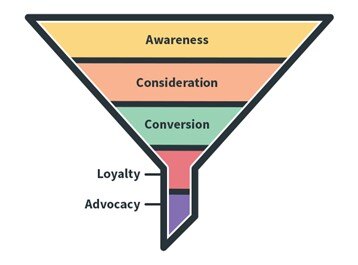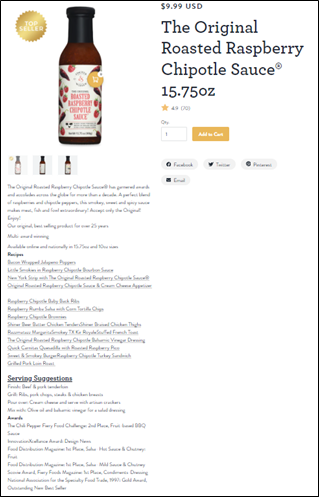Why SEO is Important for E-commerce Websites
These days, growing an e-commerce company can be extremely difficult and competitive. Because of this, simply having an e-commerce site isn't enough; you need to ensure that potential customers can find you easily. This is where search engine optimization (SEO) comes in. SEO is the key you may be missing to improving your website’s visibility on search engines, driving organic traffic, and ultimately increasing your revenue. In this blog post, we’ll explore why SEO is important for e-commerce websites, how it can benefit your business, and steps you can take to improve your e-commerce SEO strategy.
How Search Engine Optimization Helps You Grow Traffic and Revenue
Search engine optimization is not just about ranking higher on search engine results pages (SERPs); it's about attracting the right audience—people who are actively looking for the products or services you offer. When implemented correctly, SEO can significantly boost your e-commerce site's traffic, leading to more sales and higher revenue. Here’s how:
- Improves Visibility: SEO helps your site rank higher on search engines, making it easier for potential customers to find you. The higher you rank on SERPs, the more likely users are to visit your site.
- Increases Organic Traffic: By optimizing your e-commerce website for relevant keywords, you can attract organic traffic—visitors who come to your site through unpaid search results. Organic traffic is often more valuable because it consists of users who are already interested in what you offer.
- Enhances User Experience: Effective SEO practices, such as improving page speed and mobile-friendliness, can also enhance the user experience on your e-commerce site, leading to higher conversion rates.
- Increases Credibility: Ranking high on search results gives your e-commerce site credibility. Users are more likely to trust and buy from sites that appear at the top of search engine rankings.
Steps to Improve the SEO of Your E-commerce Site
Improving the SEO of your e-commerce site involves a combination of strategies, from keyword research to technical SEO. Below are actionable steps to enhance your e-commerce SEO strategy.
Perform Keyword Research That Considers Buyer Intent
The foundation of any successful e-commerce SEO strategy is thorough keyword research. When conducting e-commerce keyword research, focus on finding relevant keywords that your potential customers are using to search for products. These should map to your product pages and product category pages. Consider buyer intent as well—understanding what your customers are looking for at different stages of the purchasing process will help you target the right keywords.

Image credit to: https://sproutsocial.com/glossary/marketing-funnel/
Find and Fix Technical SEO Issues
Technical SEO is the backbone of your e-commerce site’s performance on search engines. Issues like slow page speed, broken links, and poor mobile usability can negatively impact your search engine rankings. Regularly audit your site to identify and fix technical SEO issues to ensure that search engines can crawl and index your site effectively.
Optimize Your Meta Content
Meta content, including title tags and meta descriptions, plays a crucial role in how search engines and users perceive your site. Ensure your meta content is optimized with target keywords that are relevant to your products. Compelling meta descriptions can also improve your click-through rate from search results.
Example of a meta description that describes the page thoroughly and includes target keywords:

Example of a meta description that could be improved:

Optimize Your On-Page Content for Keyword Implementation
On-page SEO is essential for helping search engines understand what your web pages are about. Optimize your product pages and other key web pages by naturally incorporating your target keywords into headers, body content, and image alt texts. Avoid keyword stuffing—focus on creating informative and valuable content that resonates with users.
Optimize Your E-commerce Site’s Product Pages and Product Collection Pages
Your product pages and product collection pages are the most important sections of your e-commerce website. Many e-commerce companies overlook the importance of optimizing product category pages, but these can often be where the money is! For example, if you sell clothing on your e-commerce site, you would want to optimize the Blue Jeans category page for "blue jeans" keywords. Seems simple right?
Optimize these pages with high-quality images, text content about the products, detailed product descriptions, and user reviews. Use relevant keywords to improve their visibility in search results.
Example of best practice product page with internal links, target keywords, and descriptive text:

Clean Up Your Site Navigation
Clear and intuitive site navigation helps both users and search engines. Simplify your site’s structure by organizing categories and subcategories logically. Ensure that every important page on your site can be accessed within a few clicks from the homepage.
Create an SEO-Friendly URL Structure
An SEO-friendly URL structure makes it easier for search engines to crawl your site and for users to understand the content of your pages. Use short, descriptive URLs that include your target keywords. Avoid using complex parameters and special characters in your URLs.
Create New Content for Highly Searched Topics
Content marketing is an effective way to attract organic traffic. Create blog posts, guides, and other types of content that address highly searched topics related to your products. This not only helps with SEO but also establishes your e-commerce site as an authority in your niche.
Add Internal Links Using Target Keywords
Internal linking is an easy but powerful SEO tactic. Link to other relevant pages on your site using target keywords. This helps distribute page authority across your site and makes it easier for users to navigate between related content.
Build Backlinks
Backlinks from authoritative sites are crucial for improving your e-commerce site’s domain authority and search engine rankings. Develop a backlink strategy that includes reaching out to bloggers, influencers, and industry publications to secure high-quality backlinks. You can also try offering to write blogs for other websites in exchange for a link back to your site or looking for new directories to be added to.
E-commerce SEO Case Study: Fischer & Wieser
Our sister company, Unfair Advantage, had the opportunity to work with Fischer & Wieser, a company known for its delicious jams, jellies, sauces, and other specialty food products sold both online and in retail locations. When Fischer & Wieser started with Unfair Advantage, they were looking for e-commerce SEO expertise, as they had done very few SEO optimizations beforehand. Their goal was to further increase their online revenue and attract more organic traffic that could bring new potential customers to their site.
To achieve these objectives, our Unfair Advantage team primarily focused on optimizing Fischer & Wieser product pages and product category pages, especially those with the highest potential to rank well in search engines. We prioritized their most profitable products, ensuring that each page was fully optimized for relevant keywords. In addition to this, we implemented a robust internal linking strategy to connect related products, making it easier for search engines and users to navigate through Fischer & Wieser's offerings. To further enhance their online presence, we also created new blog content featuring delicious recipes that highlighted their top products.
Since the start of the engagement, Fischer & Wieser's organic traffic has grown by 45%, with a 17% increase in the past year alone, largely driven by non-brand traffic sources. More impressively, organic revenue has soared by 199% since the start of our partnership, including a 30% increase over the last year. Their keyword rankings have also seen dramatic improvements, with the store now ranking for 8 times more page 1 keywords and 10.5 times more page 1 keywords across the entire site since we began working together. This case study demonstrates the significant impact that a well-executed e-commerce SEO strategy can have on driving both traffic and revenue growth.
What are the Must-Have E-commerce SEO Tools for Your Site?
If you are planning to make SEO optimizations on your own, you'll need the right tools. Here are some of the best e-commerce SEO tools we recommend that can help you improve your site’s performance on search engines:
Shopify
Shopify is a popular e-commerce platform that offers built-in SEO features, including customizable title tags, meta descriptions, and URL structures. This makes it easy even for busy entrepreneurs or CMOs to make meaningful SEO changes easily. Shopify also provides access to SEO apps that can further enhance your store's optimization.
SEMRush
SEMRush is a comprehensive SEO tool that offers keyword research, site audits, and competitive analysis. It’s ideal for identifying opportunities to improve your site’s SEO and staying ahead of your competitors. Its user interface is intuitive and easy to understand, covering the basics for most marketers.
Ahrefs
Ahrefs is another powerful SEO tool that specializes in backlink analysis, keyword research, and content gap analysis. It’s particularly useful for building a strong backlink profile and improving your search engine rankings overall. It's also our preferred SEO tool here at (un)Common Logic, as it serves as a swiss army knife for SEO optimizations.
Google Analytics
Google Analytics provides valuable insights into your website’s traffic, user behavior, and conversion rates. By analyzing this data, you can make informed decisions to improve your SEO and overall site performance.
Google Search Console
Google Search Console is an essential tool for monitoring your site’s presence on Google. It helps you track search engine rankings, identify technical SEO issues, and submit sitemaps for indexing.
SEO is essential for the success of any e-commerce website. It not only drives organic traffic but also enhances user experience, increases credibility, and boosts revenue. By implementing the strategies outlined in this blog post, you can improve your e-commerce SEO and achieve better results in search engine rankings. However, SEO can be difficult, especially on your own!
If you need professional assistance with your e-commerce SEO strategy, (un)Common Logic can help. Our team of SEO experts has the knowledge and experience to optimize your e-commerce site to grow organic traffic, brand awareness, and organic revenue. Contact us today to learn more about our e-commerce SEO Services!